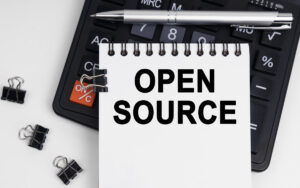Project managers (PMs) are in high demand. The Project Management Institute (PMI) reports that more than 25 million new PMs will be needed between now and 2030.
Although a PMP® certification isn’t required to work as a project manager, employers often use it as a baseline when hiring for these roles. In other words, having a PMP certification could help you get better jobs. Conversely, if you don’t have the PMP certification, it may prevent you from getting the jobs you want.
Look at just about any job description online for project managers, and you’ll often see PMP certification requirements listed as either an essential or desired credential. Though this doesn’t mean you won’t have a shot at those jobs without certification, your chances are probably better with one.
Who is PMP Certification For?
A PMP certification is for project managers and validates a PM’s skills in managing:
- People, including the skills to lead, manage, and motivate teams
- Process, including effective management of projects using predictive, agile, and flexible approaches
- Business environment, including aligning projects with strategic goals
PMP certifications help professionals in different industries, including financial services, healthcare, information technology, manufacturing, construction, and more. It ensures you have the skills to manage risk and quality and the resources to successfully complete projects within budget and timeline requirements and deal effectively with any variances that occur.
Also Read: Understanding Scope in Project Management
The Benefits of PMP Certification
For project managers meeting the PMP certification requirements and achieving certification, there are multiple benefits.
Better Job Prospects
A PMP certification is highly sought after by businesses of all sizes when hiring someone to manage projects efficiently. This will become an even more crucial skill in any economic downturn, as companies must create efficiencies while still achieving goals.
Increased Earning Potential
PMP-certified professionals typically earn higher wages than those without certifications. The median salary for PMs who have met PMP certification requirements is 32 percent higher in the U.S. and 16 percent higher globally than those who have not achieved certification.
Enhanced Credibility
Because PMP certification validates expertise, it provides instant credibility for clients, team members, and stakeholders.
Better Outcomes
Most importantly, you learn best practices and strategies for more efficient and effective project management, leading to overall better outcomes.
PMP Certification Requirements in 2024
You have to do more than pass an exam to achieve your certification. The PMP certification requirements include meeting PMP education requirements and experience leading projects. The amount of experience you need depends on whether you have a four-year degree or not.
Four-year Degree
If you have a four-year degree, you will also need to have 36 months of experience leading projects within the previous eight years.
Secondary Education Diploma (or Equivalent)
If you have a secondary education diploma (or equivalent), you can still meet PMP certification requirements, but you will also need 60 months of experience leading projects within the previous eight years.
Project Management Training and Education
Project management certification requirements also include at least 35 hours of project management training, including:
- On-demand courses
- Webinars
- PMP certification courses
How to Get a PMP Certification
Once you have the necessary training and education, you apply for PMP certification through the Project Management Institute (PMI) and take an exam to ensure that you can meet the required PMP certification requirements..
Note: Also learn more about how to get CAPM certification.
Apply for PMP Certification
Besides meeting the PMP education requirements, you will also need to document your PMP certification eligibility when submitting an application. This will include detailing:
- Projects you have led, where you have worked, roles and responsibilities, and project duration
- Training you have completed, including the institutions you attended, any courses you’ve completed, and the qualifying hours
You may also be selected for an audit. If an audit occurs, you will need to provide additional documentation to augment your application, including a copy of your degree, verification of experience signed by a supervisor, and proof of completion for project management training.
Pay the Exam Fee
You will also have to pay the exam fees, which vary depending on whether you are a PMI Institute member. Members pay $405 to take the exam, while non-members pay $575. If you are not a member, you can also reduce your costs by bundling membership and exam fees.
Prep for the Exam
Before you take the exam, you will want to make sure you are ready. While you can take the exam up to three times within a one-year timeframe, there is a cost involved each time you do. So, ensuring you stay current on best practices through ongoing education can help you be prepared to pass the exam the first time.
The PMP exam covers many of the items in the PMBOK® Guide, which is regularly updated by PMI to capture emerging technology, approaches, and strategies. The current edition covers 12 project management principles and eight performance domains essential to delivering high-quality project outcomes.
If you are already established in your career, you will want to refresh your knowledge to stay on top of emerging strategies and techniques.
Take the PMP Certification Exam
Testing takes place in a controlled environment at an exam center by Person Vue. You are not allowed to bring study materials, laptops, or smartphones into the testing room with you.
While the exam is updated from time to time, the current examination includes 180 questions. Test takers must complete the exam within three hours and 50 minutes, including two breaks of up to 10 minutes each.
Questions may include:
- Multiple choice
- Multiple responses
- Answer matching
- Fill in the blank
- Hotspot images
The exam covers three core areas: people, process, and business. Overall, roughly half of the content covers agile or hybrid approaches to project management, while the other half focuses on predictive techniques.
People
Questions about leading and building teams, conflict management, and similar topics account for 42 percent of the exam.
Process
Questions about project methodology, budgets, resource management, project changes, and strategies make up 50 percent of the test.
Business
The remaining eight percent focuses on professional skills such as compliance, organizational alignment, and project value.
Also Read: Mastering Project Manager Skills: A Comprehensive Guide
Renewing PMP Certification
The PMP certification is good for three years. After that, you’ll need to renew it. You can either take the exam again to get recertified or complete a minimum of 60 hours of additional education and professional development during the three years prior to renewal to ensure that you are still meeting the required PMP certification requirements.
Earning the PMP Certification
Earning your PMP certification will prepare you for a lucrative career as a project manager and demonstrate that you have the tools, skills, and knowledge to work efficiently and effectively.
Online PMP certification courses can help you become eligible for PMP certification and gain the knowledge you need to pass the exam. The online PMP certification program from Simplilearn, in collaboration with the University of Massachusetts, is aligned with the PMP certification and IASSC-Lean Six Sigma. You can take live online interactive classes and achieve real-world results through capstone projects.
The online bootcamp takes six months to complete and covers the following topics:
- Agile management
- Design thinking
- Leadership skills
- Project management
- Customer experience design
- Digital transformation
- Lean Six Sigma Green Belt (LSSGB)
- Risk management
Learn more about how an online PMP certification through this program can help prepare you for your PMP certification and enhance your career as a certified project management professional.
You might also like to read:
Project Management Risks to Watch For
All About Project Management Qualifications







